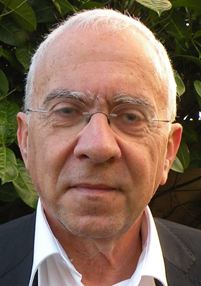Meet the Author Series: The Evolutionary Dynamics of Discursive Knowledge: Communication-Theoretical Perspectives on an Empirical Philosophy of Science
The book brings together three themes which have been central to my research program: (1) the dynamics of science, technology, and innovation; (2) the scientometric operationalization and measurement of these dynamics; and (3) the Triple Helix (TH) of university-industry-government relations. I relate these three themes first from an autobiographical perspective to (i)) Luhmann’s sociological theory about meaning-processing in communications with (ii) information-theoretical operationalizations of the possible synergies in Triple-Helix relations, and with (iii) anticipation as a selection mechanism in cultural evolutions different from “natural selection.” Interacting selection mechanisms can drive the development of redundancy; that is, options that are available, but have not yet been used. An increasing number of options is crucial for the viability of innovation systems more than is past performance. A calculus of redundancy different from and complementary to information calculus is envisaged.The webinar focuses on his book entitled “The Evolutionary Dynamics of Discursive Knowledge: .” (The book is freely available at SpringerOpen: https://link.springer.com/book/10.1007/978-3-030-59951-5 ). Read a summary and review of the book written by Mark Johnston, Liverpool University.
Presenter
 Loet Leydesdorff (Ph.D. Sociology, M.A. Philosophy, and M.Sc. Biochemistry) is Professor emeritus at the Amsterdam School of Communications Research (ASCoR) of the University of Amsterdam. He is Associate Faculty at the Science and Technology Policy Research Unit (SPRU) of the University of Sussex, Visiting Professor of the Institute of Scientific and Technical Information of China (ISTIC) in Beijing, Guest Professor at Zhejiang University in Hangzhou, and Visiting Fellow at the School of Management, Birkbeck, University of London. He has published extensively in systems theory, social network analysis, scientometrics, and the sociology of innovation.
Loet Leydesdorff (Ph.D. Sociology, M.A. Philosophy, and M.Sc. Biochemistry) is Professor emeritus at the Amsterdam School of Communications Research (ASCoR) of the University of Amsterdam. He is Associate Faculty at the Science and Technology Policy Research Unit (SPRU) of the University of Sussex, Visiting Professor of the Institute of Scientific and Technical Information of China (ISTIC) in Beijing, Guest Professor at Zhejiang University in Hangzhou, and Visiting Fellow at the School of Management, Birkbeck, University of London. He has published extensively in systems theory, social network analysis, scientometrics, and the sociology of innovation.